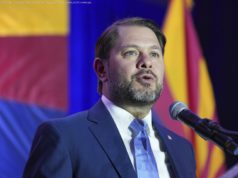America’s Founders were not big on executive power. Even after a war with Britain, the Constitution’s authors saw no reason for a strong presidency. Many…
America’s Founders were not big on executive power. Even after a war with Britain, the Constitution’s authors saw no reason for a strong presidency.
Many of the powers they assigned to presidents, including staffing their own administrations, were contingent on congressional approval. The authority of presidents to act unilaterally included vetoing legislation, granting pardons and not much else.
But over the years, congresses and courts concluded that a more powerful and flexible president was needed. They indulged presidents’ sweeping claims of authority. They also enacted laws that allowed presidents to act without congressional approval and in ways not outlined in the Constitution.
Notable among these is the 1976 National Emergencies Act, a law that codifies presidents’ power to declare an emergency. This act, as well as narrower provisions in other laws, presumes that presidents would exercise these powers with great restraint and only in real emergencies, not to make good on campaign promises or mollify activists within their party.






